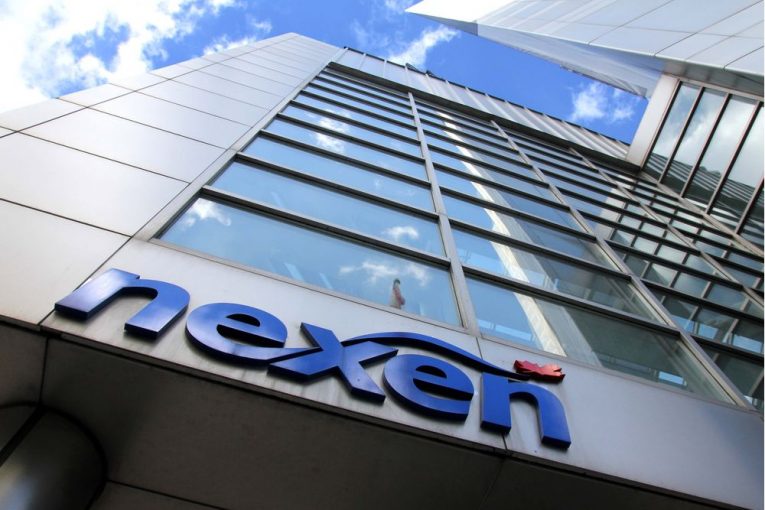
The partners developing the $28-billion Aurora LNG project pulled the plug on the project Thursday after four years of examination, dealing another setback for B.C.’s liquefied natural gas export industry.
Nexen Energy, the Calgary-based subsidiary of Chinese oil giant CNOOC Ltd., said it has decided with Japanese partner INPEX Gas British Columbia Ltd. to stop work on a feasibility study on the proposal.
The company said in a statement posted on its website that the current “macro-economic environment” doesn’t support building a large LNG business as proposed at Digby Island, west of Prince Rupert, B.C.
“Our decision was market-based and driven by capital discipline,” said spokeswoman Brittney Price in an email.
“We require every business investment to meet minimum criteria including sustainable, long-term profitability.”
She declined to say how much has been invested to date. She said the decision would result in “some impacts to our workforce over the coming months” but reductions would be minimal.
According to its website, the Aurora project would cost $28 billion to build and each of its two phases would employ about 300 permanent workers.
In July, a consortium led by Malaysia’s state-owned Petronas cancelled its $36-billion Pacific NorthWest LNG project near Port Edward, B.C., citing a downturn in market conditions.
The project would have included a natural gas export terminal on Lelu Island on the province’s northern coast and a 900-kilometre pipeline to bring the natural gas in from northeastern B.C.
B.C.’s previous Liberal government had hoped to have three LNG plants operating by 2020, but none have started construction. About 20 have been proposed.
Commodity analyst Martin King of GMP FirstEnergy said he’s not surprised that Canadian LNG projects are being cancelled because world prices have plunged to around US$6 per million British thermal units due to a surplus in the market.
“That was the pipe dream, that everybody was going to capture these big double-digit prices, $14, $15, $18 per mmBTU, maybe $20 on a spike, and here we are at half that,” he said.
Meanwhile, he said new LNG projects under construction in places such as the United States, Australia and Russia are expected to add 14.6 billion cubic feet per day of capacity by 2020 to the current capacity of just under 50 bcf/d.
In a recent report, the National Energy Board warned Canada is a late entrant to the global LNG market and the next seven years will be critical to the development of the industry.
The Aurora project was awaiting word on a B.C. environmental assessment certificate. Phase 1 was tentatively set to begin construction in 2020 and begin shipping it to world markets by 2025.
Aurora has a 25-year permit from the National Energy Board to export up to 25 million tonnes of LNG per year.
Last November, Woodfibre LNG announced it would proceed with a 2.1-million-tonne-per-year LNG export development in Squamish, B.C. In July, it announced a revised environmental certificate had been approved.
Like Petronas, CNOOC said the Aurora partners will continue to produce natural gas from their Horn River wells in northeastern B.C. while monitoring the North American market to evaluate future investments.
You can read more of the news on source
